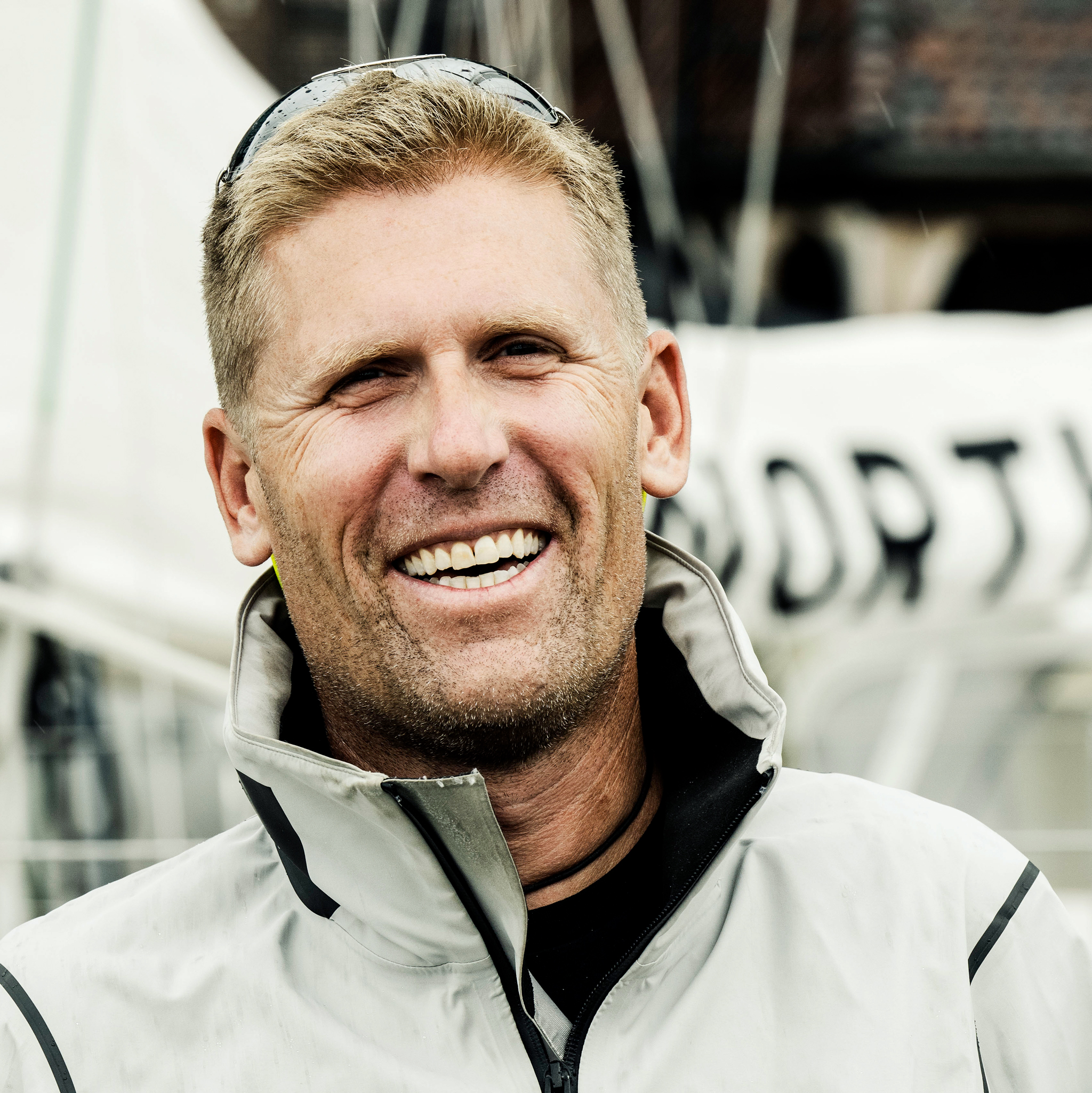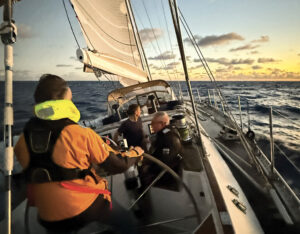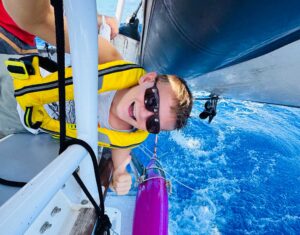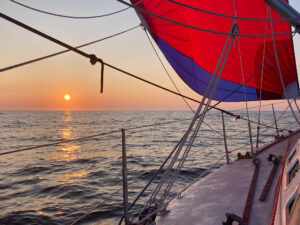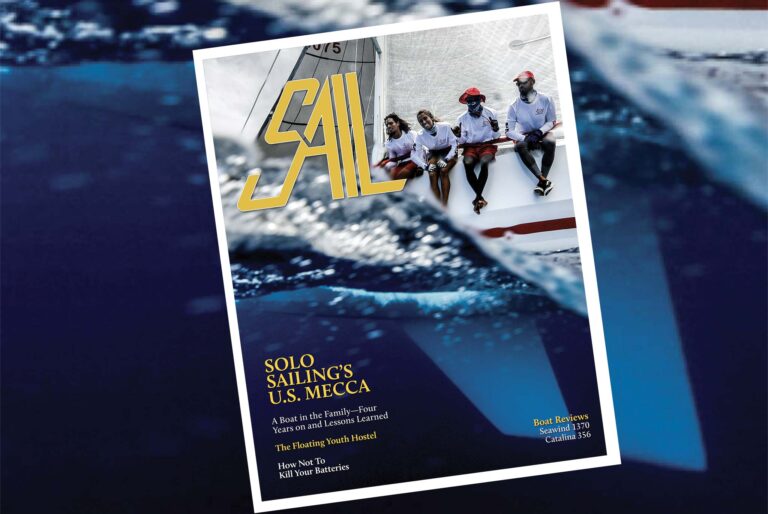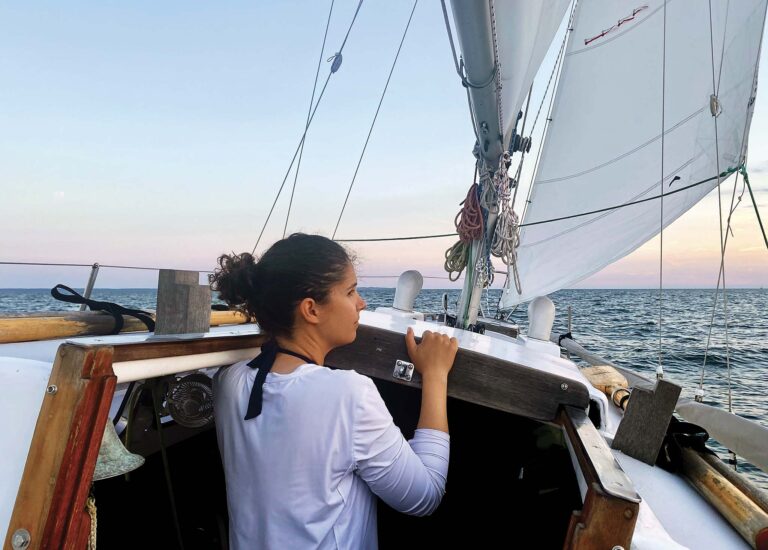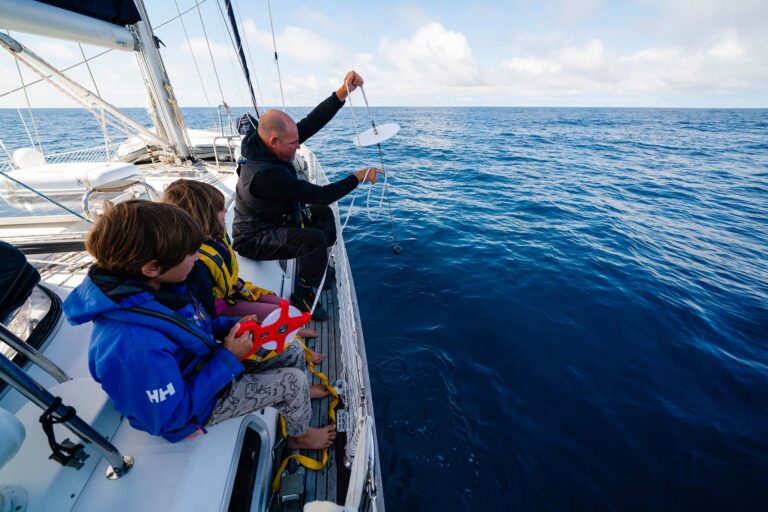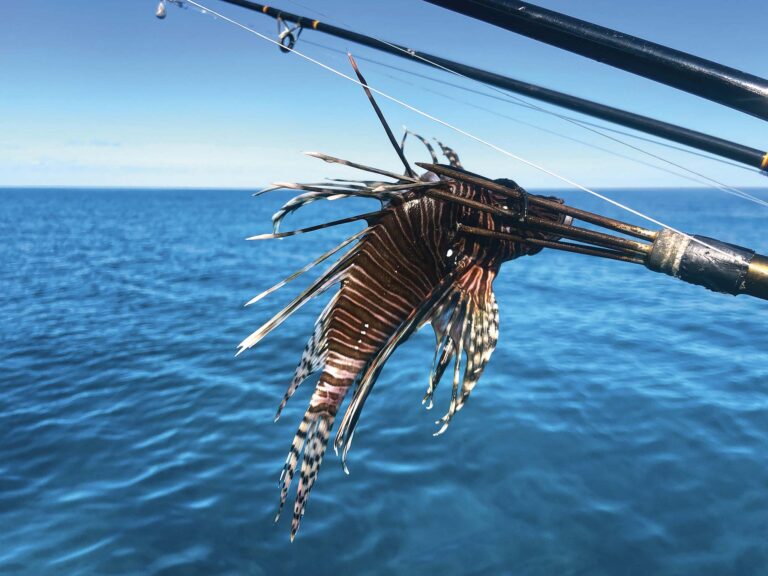
Bluewater sailing is 25 percent actually sailing and 75 percent learning how to live on a boat at sea, in constant motion and with no chance to get off the roller coaster. I cannot over-emphasize how difficult normal daily functions become at sea, even on nice, calm days. Walking around belowdecks when the boat is heeled is like maneuvering on an alien planet with more gravity than you’re used to on Earth. The simplest daily chores, like brushing your teeth, become arduous, complicated tasks. Cooking a nutritious meal can feel impossible even for the iron stomachs among us, and if you feel the slightest bit seasick, you simply won’t do it. In short: offshore sailing is far more physically demanding than you can imagine, so make sure you’re mentally prepared.
“How do I know I’ll get along with everyone?” The answer to this, another one of the more common questions we get on Isbjörn and Icebear, sounds like a joke: “You will because you have to.” Ocean sailing is as close to being an astronaut as we “normal” folk can ever hope to attain—you’re living in cramped quarters with your crewmates, navigating your tiny, fragile craft across a hostile environment with zero outside help. You must get along with your shipmates if you are going to a succeed. Yes, that’s down partially to leadership. But it also requires a common open-mindedness among the crew that they’re consciously going to like one another, or at least try. On watch I always pair the extroverts together and the introverts with the other introverts. As a member of the latter group, there’s nothing worse than spending four hours in the cockpit with someone who won’t stop talking.
It will take three days to acclimate to life at sea, whether you’re seasick or not. Even now, in the middle of a ten-thousand-mile season, each passage is a “reset” of sorts for me. It takes me three days to start feeling like myself and to really enjoy the passage, instead of just enduring it.
You won’t sleep well your first three days at sea as you acclimate to the watch rotation. If you’re the skipper and responsible for the boat and crew, you’ll sleep even worse with the inevitable “leader’s anxiety” hanging around your neck. If you’re the crew, lay down in your bunk when you’re off-watch, no matter how excited you may be at being offshore for the first time, and no matter whether you sleep or not. Resting is better than nothing. If you’re the skipper, do whatever it takes to ensure the crew wakes you up when you need them to. Establish specific standing orders so the crew knows exactly under what circumstances you want to be on deck. Only when you can trust them to follow this protocol will you actually get any real rest. Conversely, if the crew wakes you up at every passing cloud, you’ll never get the time to sack out. If you have enough crew, don’t put yourself in the watch rotation.

In those first three days, you probably won’t poop. Sorry to be so blunt, but it’s true—your bodily functions take a backseat to survival-mode in a new and unstable environment. Drink lots of water, keep eating and eventually, your bowels will come around.
The good news? If you’ve never been at sea, you’ve never seen a truly dark night sky. The stars on a clear, moonless night at sea seem impossible in number and impossibly close. Familiar constellations get lost in the sea of the Milky Way. Satellites soar across the sky, one after another. Lying in the cockpit on a four-hour watch you’ll easily see a dozen or more if you’re paying attention. Shooting stars are another regular occurrence. How often do you take the time to fully experience a sunrise or sunset at home? How often do you just sit for hours and watch how the sky transitions from daytime blue to twilight pink, orange and purple? Or how the dawn breaks in the east, sometimes hours before the sun actually rises, especially in the higher latitudes.
You’ll be pleasantly surprised at how easy it is to disconnect. To paraphrase a famous surfer and snowboarder turned sailor, at home you can choose to be disconnected, but often don’t have the discipline to do so. Offshore it’s not a choice. After two days of going cold turkey, you’ll exist in the moment in a way you haven’t since you were a child.

On the practical side, there’s a few things I won’t go to sea without. I always download some of my favorite podcasts or audiobooks before we set forth. Listening to audio is a great way to get rest when you’re not tired enough to sleep but too tired to read. I prefer actual books to an e-reader, though I can see the point if you have limited space in which to pack.
I always tell crew, if it’s your first time in the ocean, just take some kind of seasick medicine and enjoy the passage. I recommend scopolamine patches, though they must be tested at home first, since the adverse side effects, though rare can dangerous. At the same time, everyone eventually adapts—it’s part of the beauty of being human. If you do get sick, hang in there, get horizontal whenever possible and ride it out. Like your bowels, you’ll come around.
Along these same lines, get mentally comfortable with discomfort, while doing what you can to mitigate the worst of it. Pack baby wipes for cleaning up each day, a water bottle to stay hydrated, a headlamp with a red light for moving around at night and an eye mask so you can sleep when the sun is up. Expect to shower only once every three or four days.
Last, but perhaps most importantly, allow for a couple of nights at anchor before heading out. Get away from the hustle and bustle of shore and last-minute preparations. We start every one of our passages with at least one night at anchor to help the crew get acclimated. This way everyone gets a good night’s sleep and plenty of time to learn the boat. Dock lines and fenders are stowed, and the boat is ready to sail before we go to bed. We typically get underway around mid-morning, after a leisurely breakfast.
Finally, stay present! Even the hardest passage will be over in the blink of an eye, so take the bad with the good and enjoy every moment.
Andy Schell is a veteran delivery captain and co-owner, with his wife, Mia Karlsson, of the adventure-charter company 59 North, which specializes in providing sail-training and offshore passagemaking opportunities.
Visit 59-north.com for more information.
July 2021
